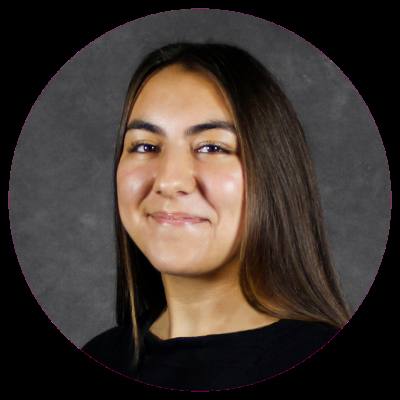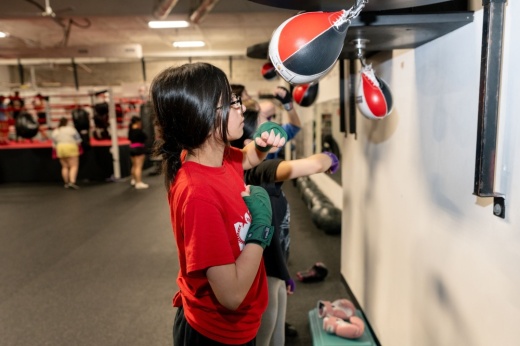The inspiration
AWBC owner Julia Gschwind and instructor Alex Plichta started the nonprofit project during the height of the COVID-19 pandemic.
Plichta said Gschwind had a longtime goal of providing free training to girls as a way to get more girls involved in the historically male-dominated sport.
“I think that entering that space where generations of people associate it with men and then taking control of that space is incredibly empowering,” Plichta said. “It's very uncommon to find a women's gym or a girl's boxing gym anywhere.”
Plichta said when the nonprofit first launched, it partnered with local schools through Austin ISD to arrange boxing classes and taught classes at Montopolis Recreation and Community Center.

In the past year and a half, the nonprofit has shifted its program to a scholarship system. Girls ages 12 to 17 are able to apply for a scholarship in which they receive free training at Austin Women’s Boxing Center.
Starting Aug. 4, the boxing center will begin offering classes for girls ages eight and up.
The scholarship covers a trimester of classes and currently eight girls are participating in the program. For the upcoming trimester from September to December, Plichta said the nonprofit hopes to raise enough funds to support 10 or more kids.
Each class takes a different shape but attendees can expect to start out with mobility training, most likely taught in a game format, a technique portion, followed by strength and conditioning and ending the class session with stretching.

While learning boxing techniques and staying active, Plichta said the most impactful growth she sees in participants is mental.
“I've seen a major growth in their communication skills and their openness to problem solve and I've seen them take on some leadership roles within the class,” Plichta said. “So confidence is the biggest impact.”
Program attendees not only walk away with physical and mental skills, but with a developed sense of community as well.
“The two biggest strengths that both [organizations] have is authenticity and instruction and community building,” Plichta said. “In classes...you might be playing against a team and you have to conspire with your teammates or with mitt holding with a partner, you have to be able to communicate what your needs are so we definitely encourage people to get to meet each other.”

Plichta said the nonprofit will begin fundraising for its scholarship program’s upcoming trimester soon with a silent auction in the works. Small businesses interested in donating prizes for the silent auction can contact the nonprofit for more information.
Community members looking to support fundraising can share the donation link listed on the nonprofit’s website or join the effort by becoming a volunteer to help with grant writing.
“I hope people see the value in what we're doing with girls and sports especially in a sport that never really included women,” Plichta said. “Women weren't allowed to box in the Olympics until 2012 and some of our teenagers were born after that. So some of our participants were lucky enough to live in a world where they could always do that if they wanted to.”
- 2919 Menchaca Road, Ste. 210, Austin
- www.headstronggirlsboxing.org





